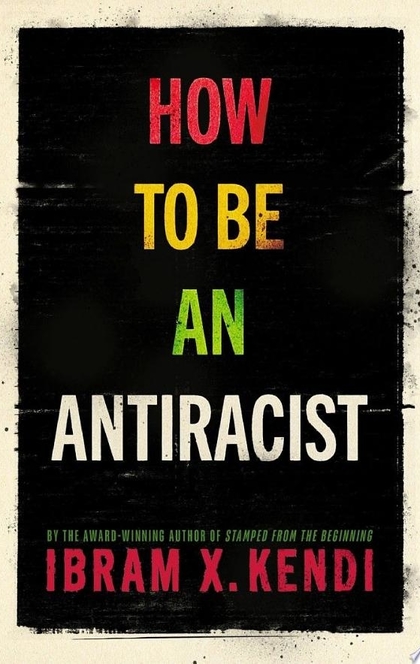
Margot Robbie Reading List - 48 Books to Consider
Margot Robbie
As BLM movement is gaining more and more recognition lately and Margot shared an educative list of books to participate and spread the word.
See all
0
likes
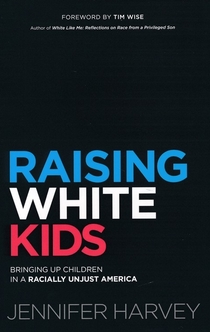
Raising White Kids
With a foreword by Tim Wise, Raising White Kids is for families, churches, educators, and communities who want to equip their children to be active and able participants in a society that is becoming one of the most racially diverse in the world while remaining full of racial tensions. For white people who are committed to equity and justice, living in a nation that remains racially unjust and deeply segregated creates unique conundrums. These conundrums begin early in life and impact the racial development of white children in powerful ways. What can we do within our homes, communities and schools? Should we teach our children to be “colorblind”? Or, should we teach them to notice race? What roles do we want to equip them to play in addressing racism when they encounter it? What strategies will help our children learn to function well in a diverse nation? Talking about race means naming the reality of white privilege and hierarchy. How do we talk about race honestly, then, without making our children feel bad about being white? Most importantly, how do we do any of this in age-appropriate ways? While a great deal of public discussion exists in regard to the impact of race and racism on children of color, meaningful dialogue about and resources for understanding the impact of race on white children are woefully absent. Raising White Kids steps into that void.
See all
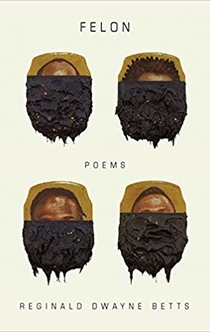
Felon: Poems
Winner of the 2019 NAACP Image Award for Outstanding Literary Work in Poetry Finalist for the 2019 Los Angeles Times Book Prize in Poetry A searing volume by a poet whose work conveys "the visceral effect that prison has on identity" (Michiko Kakutani, New York Times). Felon tells the story of the effects of incarceration in fierce, dazzling poems—canvassing a wide range of emotions and experiences through homelessness, underemployment, love, drug abuse, domestic violence, fatherhood, and grace—and, in doing so, creates a travelogue for an imagined life. Reginald Dwayne Betts confronts the funk of postincarceration existence and examines prison not as a static space, but as a force that enacts pressure throughout a person’s life. The poems move between traditional and newfound forms with power and agility—from revolutionary found poems created by redacting court documents to the astonishing crown of sonnets that serves as the volume’s radiant conclusion. Drawing inspiration from lawsuits filed on behalf of the incarcerated, the redaction poems focus on the ways we exploit and erase the poor and imprisoned from public consciousness. Traditionally, redaction erases what is top secret; in Felon, Betts redacts what is superfluous, bringing into focus the profound failures of the criminal justice system and the inadequacy of the labels it generates. Challenging the complexities of language, Betts animates what it means to be a "felon."
See all
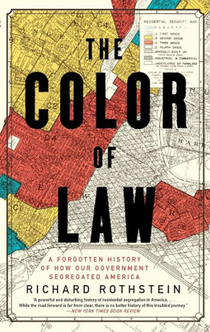
The Color of Law: A Forgotten History of How Our Government Segregated America
New York Times Bestseller • Notable Book of the Year • Editors' Choice Selection One of Bill Gates’ “Amazing Books” of the Year One of Publishers Weekly’s 10 Best Books of the Year Longlisted for the National Book Award for Nonfiction An NPR Best Book of the Year Winner of the Hillman Prize for Nonfiction Gold Winner • California Book Award (Nonfiction) Finalist • Los Angeles Times Book Prize (History) Finalist • Brooklyn Public Library Literary Prize This “powerful and disturbing history” exposes how American governments deliberately imposed racial segregation on metropolitan areas nationwide (New York Times Book Review). Widely heralded as a “masterful” (Washington Post) and “essential” (Slate) history of the modern American metropolis, Richard Rothstein’s The Color of Law offers “the most forceful argument ever published on how federal, state, and local governments gave rise to and reinforced neighborhood segregation” (William Julius Wilson). Exploding the myth of de facto segregation arising from private prejudice or the unintended consequences of economic forces, Rothstein describes how the American government systematically imposed residential segregation: with undisguised racial zoning; public housing that purposefully segregated previously mixed communities; subsidies for builders to create whites-only suburbs; tax exemptions for institutions that enforced segregation; and support for violent resistance to African Americans in white neighborhoods. A groundbreaking, “virtually indispensable” study that has already transformed our understanding of twentieth-century urban history (Chicago Daily Observer), The Color of Law forces us to face the obligation to remedy our unconstitutional past.
See all
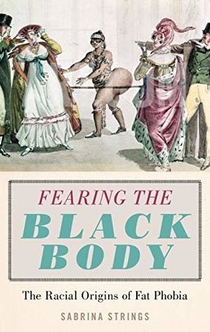
Fearing the Black Body
How the female body has been racialized for over two hundred years There is an obesity epidemic in this country and poor black women are particularly stigmatized as “diseased” and a burden on the public health care system. This is only the most recent incarnation of the fear of fat black women, which Sabrina Strings shows took root more than two hundred years ago. Strings weaves together an eye-opening historical narrative ranging from the Renaissance to the current moment, analyzing important works of art, newspaper and magazine articles, and scientific literature and medical journals—where fat bodies were once praised—showing that fat phobia, as it relates to black women, did not originate with medical findings, but with the Enlightenment era belief that fatness was evidence of “savagery” and racial inferiority. The author argues that the contemporary ideal of slenderness is, at its very core, racialized and racist. Indeed, it was not until the early twentieth century, when racialized attitudes against fatness were already entrenched in the culture, that the medical establishment began its crusade against obesity. An important and original work, Fearing the Black Body argues convincingly that fat phobia isn’t about health at all, but rather a means of using the body to validate race, class, and gender prejudice.
See all
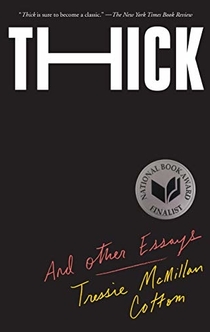
Thick
FINALIST FOR THE 2019 NATIONAL BOOK AWARD Named a notable book of 2019 by the New York Times Book Review, Chicago Tribune, Time, and The Guardian As featured by The Daily Show, NPR, PBS, CBC, Time, VIBE, Entertainment Weekly, Well-Read Black Girl, and Chris Hayes, "incisive, witty, and provocative essays" (Publishers Weekly) by one of the "most bracing thinkers on race, gender, and capitalism of our time" (Rebecca Traister) "Thick is sure to become a classic." --The New York Times Book Review In eight highly praised treatises on beauty, media, money, and more, Tressie McMillan Cottom--award-winning professor and acclaimed author of Lower Ed--is unapologetically "thick": deemed "thick where I should have been thin, more where I should have been less," McMillan Cottom refuses to shy away from blending the personal with the political, from bringing her full self and voice to the fore of her analytical work. Thick "transforms narrative moments into analyses of whiteness, black misogyny, and status-signaling as means of survival for black women" (Los Angeles Review of Books) with "writing that is as deft as it is amusing" (Darnell L. Moore). This "transgressive, provocative, and brilliant" (Roxane Gay) collection cements McMillan Cottom's position as a public thinker capable of shedding new light on what the "personal essay" can do. She turns her chosen form into a showcase for her critical dexterity, investigating everything from Saturday Night Live, LinkedIn, and BBQ Becky to sexual violence, infant mortality, and Trump rallies. Collected in an indispensable volume that speaks to the everywoman and the erudite alike, these unforgettable essays never fail to be "painfully honest and gloriously affirming" and hold "a mirror to your soul and to that of America" (Dorothy Roberts).
See all
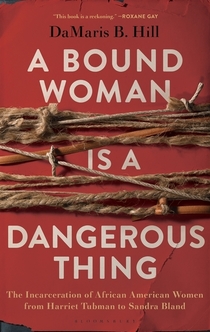
A Bound Woman Is a Dangerous Thing
Nominated for an NAACP Image AwardA Publishers Weekly Top 10 History Title for the seasonBooklist's Top 10 Diverse Nonfiction titles for the yearBookRiot's "50 Must-Read Poetry Collections"Most Anticipated Books of the Year--The Rumpus, NylonA revelatory work in the tradition of Claudia Rankine's Citizen, DaMaris Hill's searing and powerful narrative-in-verse bears witness to American women of color burdened by incarceration. “It is costly to stay free and appear / sane.”From Harriet Tubman to Assata Shakur, Ida B. Wells to Sandra Bland and Black Lives Matter, black women freedom fighters have braved violence, scorn, despair, and isolation in order to lodge their protests. In A Bound Woman Is a Dangerous Thing, DaMaris Hill honors their experiences with at times harrowing, at times hopeful responses to her heroes, illustrated with black-and-white photographs throughout.For black American women, the experience of being bound has taken many forms: from the bondage of slavery to the Reconstruction-era criminalization of women; from the brutal constraints of Jim Crow to our own era's prison industrial complex, where between 1980 and 2014, the number of incarcerated women increased by 700%.* For those women who lived and died resisting the dehumanization of confinement--physical, social, intellectual--the threat of being bound was real, constant, and lethal. In A Bound Woman Is a Dangerous Thing, Hill presents bitter, unflinching history that artfully captures the personas of these captivating, bound yet unbridled African-American women. Hill's passionate odes to Zora Neale Hurston, Lucille Clifton, Fannie Lou Hamer, Grace Jones, Eartha Kitt, and others also celebrate the modern-day inheritors of their load and light, binding history, author, and reader in an essential legacy of struggle.*The Sentencing Project
See all
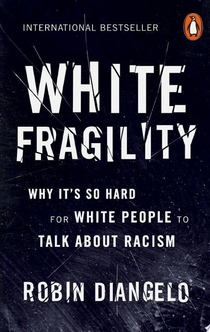
White Fragility
The International Bestseller'With clarity and compassion, DiAngelo allows us to understand racism as a practice not restricted to "bad people." In doing so, she moves our national discussions forward. This is a necessary book for all people invested in societal change' Claudia RankineAnger. Fear. Guilt. Denial. Silence. These are the ways in which ordinary white people react when it is pointed out to them that they have done or said something that has - unintentionally - caused racial offence or hurt. After, all, a racist is the worst thing a person can be, right? But these reactions only serve to silence people of colour, who cannot give honest feedback to 'liberal' white people lest they provoke a dangerous emotional reaction. Robin DiAngelo coined the term 'White Fragility' in 2011 to describe this process and is here to show us how it serves to uphold the system of white supremacy. Using knowledge and insight gained over decades of running racial awareness workshops and working on this idea as a Professor of Whiteness Studies, she shows us how we can start having more honest conversations, listen to each other better and react to feedback with grace and humility. It is not enough to simply hold abstract progressive views and condemn the obvious racists on social media - change starts with us all at a practical, granular level, and it is time for all white people to take responsibility for relinquishing their own racial supremacy.'By turns mordant and then inspirational, an argument that powerful forces and tragic histories stack the deck fully against racial justice alongside one that we need only to be clearer, try harder, and do better' David Roediger, Los Angeles Review of Books'The value in White Fragility lies in its methodical, irrefutable exposure of racism in thought and action, and its call for humility and vigilance' Katy Waldman, New Yorker'A vital, necessary, and beautiful book' Michael Eric Dyson
See all

The New Jim Crow
Once in a great while a book comes along that changes the way we see the world and helps to fuel a nationwide social movement. The New Jim Crow is such a book. Praised by Harvard Law professor Lani Guinier as "brave and bold," this book directly challenges the notion that the election of Barack Obama signals a new era of colorblindness. With dazzling candor, legal scholar Michelle Alexander argues that "we have not ended racial caste in America; we have merely redesigned it." By targeting black men through the War on Drugs and decimating communities of color, the U.S. criminal justice system functions as a contemporary system of racial control—relegating millions to a permanent second-class status—even as it formally adheres to the principle of colorblindness. In the words of Benjamin Todd Jealous, president and CEO of the NAACP, this book is a "call to action."Called "stunning" by Pulitzer Prize–winning historian David Levering Lewis, "invaluable" by the Daily Kos, "explosive" by Kirkus, and "profoundly necessary" by the Miami Herald, this updated and revised paperback edition of The New Jim Crow, now with a foreword by Cornel West, is a must-read for all people of conscience.
See all

All About Love
The acclaimed first volume in bell hooks' "Love Song to the Nation"“The word ‘love’ is most often defined as a noun, yet . . . we would all love better if we used it as a verb,” writes bell hooks as she comes out fighting and on fire in All About Love. Here, at her most provocative and intensely personal, bell hooks (renowned scholar, cultural critic, and feminist) skewers our view of love as romance. In its place she offers a proactive new ethic for a people and a society bereft with lovelessness.As bell hooks uses her incisive mind and razor-sharp pen to explore the question “What is love?” her answers strike at both the mind and heart. In thirteen concise chapters, hooks examines her own search for emotional connection and society’s failure to provide a model for learning to love. Razing the cultural paradigm that the ideal love is infused with sex and desire, she provides a new path to love that is sacred, redemptive, and healing for individuals and for a nation. The Utne Reader declared bell hooks one of the “100 Visionaries Who Can Change Your Life.” All About Love is a powerful affirmation of just how profoundly she can.
See all
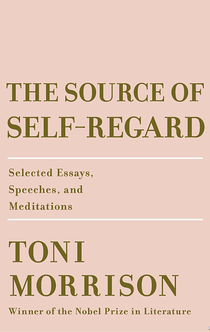
The Source of Self-Regard
Arguably the most celebrated and revered writer of our time now gives us a new nonfiction collection--a rich gathering of her essays, speeches, and meditations on society, culture, and art, spanning four decades.The Source of Self-Regard is brimming with all the elegance of mind and style, the literary prowess and moral compass that are Toni Morrison's inimitable hallmark. It is divided into three parts: the first is introduced by a powerful prayer for the dead of 9/11; the second by a searching meditation on Martin Luther King Jr., and the last by a heart-wrenching eulogy for James Baldwin. In the writings and speeches included here, Morrison takes on contested social issues: the foreigner, female empowerment, the press, money, "black matter(s)," and human rights. She looks at enduring matters of culture: the role of the artist in society, the literary imagination, the Afro-American presence in American literature, and in her Nobel lecture, the power of language itself. And here too is piercing commentary on her own work (including The Bluest Eye, Sula, Tar Baby, Jazz, Beloved, and Paradise) and that of others, among them, painter and collagist Romare Bearden, author Toni Cade Bambara, and theater director Peter Sellars. In all, The Source of Self-Regard is a luminous and essential addition to Toni Morrison's oeuvre.
See all

Sister Outsider
The woman's place of power within each of us is neither white nor surface; it is dark, it is ancient, and it is deepThe revolutionary writings of Audre Lorde gave voice to those 'outside the circle of this society's definition of acceptable women'. Uncompromising, angry and yet full of hope, this collection of her essential prose - essays, speeches, letters, interviews - explores race, sexuality, poetry, friendship, the erotic and the need for female solidarity, and includes her landmark piece 'The Master's Tools Will Never Dismantle the Master's House'.'The truth of her writing is as necessary today as it's ever been' Guardian
See all
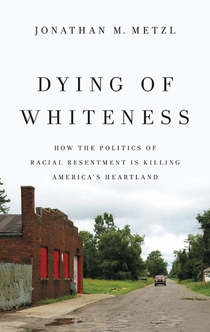
Dying of Whiteness
A physician reveals how right-wing backlash policies have mortal consequences -- even for the white voters they promise to helpNamed one of the most anticipated books of 2019 by Esquire and the Boston GlobeIn the era of Donald Trump, many lower- and middle-class white Americans are drawn to politicians who pledge to make their lives great again. But as Dying of Whiteness shows, the policies that result actually place white Americans at ever-greater risk of sickness and death.Physician Jonathan M. Metzl's quest to understand the health implications of "backlash governance" leads him across America's heartland. Interviewing a range of everyday Americans, he examines how racial resentment has fueled progun laws in Missouri, resistance to the Affordable Care Act in Tennessee, and cuts to schools and social services in Kansas. And he shows these policies' costs: increasing deaths by gun suicide, falling life expectancies, and rising dropout rates. White Americans, Metzl argues, must reject the racial hierarchies that promise to aid them but in fact lead our nation to demise.
See all
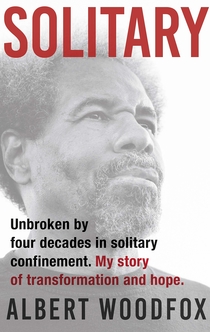
Solitary
FINALIST FOR THE PULITZER PRIZE IN GENERAL NONFICTIONFINALIST FOR THE NATIONAL BOOK AWARD IN NONFICTIONSolitary is the unforgettable life story of a man who served more than four decades in solitary confinement—in a 6-foot by 9-foot cell, 23 hours a day, in notorious Angola prison in Louisiana—all for a crime he did not commit. That Albert Woodfox survived was, in itself, a feat of extraordinary endurance against the violence and deprivation he faced daily. That he was able to emerge whole from his odyssey within America’s prison and judicial systems is a triumph of the human spirit, and makes his book a clarion call to reform the inhumanity of solitary confinement in the U.S. and around the world. Arrested often as a teenager in New Orleans, inspired behind bars in his early twenties to join the Black Panther Party because of its social commitment and code of living, Albert was serving a 50-year sentence in Angola for armed robbery when on April 17, 1972, a white guard was killed. Albert and another member of the Panthers were accused of the crime and immediately put in solitary confinement by the warden. Without a shred of actual evidence against them, their trial was a sham of justice that gave them life sentences in solitary. Decades passed before Albert gained a lawyer of consequence; even so, sixteen more years and multiple appeals were needed before he was finally released in February 2016. Remarkably self-aware that anger or bitterness would have destroyed him in solitary confinement, sustained by the shared solidarity of two fellow Panthers, Albert turned his anger into activism and resistance. The Angola 3, as they became known, resolved never to be broken by the grinding inhumanity and corruption that effectively held them for decades as political prisoners. He survived to give us Solitary, a chronicle of rare power and humanity that proves the better spirits of our nature can thrive against any odds.
See all

Reclaiming Our Space
A treatise of Black women’s transformative influence in media and society, placing them front and center in a new chapter of mainstream resistance and political engagementIn Reclaiming Our Space, social worker, activist, and cultural commentator Feminista Jones explores how Black women are changing culture, society, and the landscape of feminism by building digital communities and using social media as powerful platforms. As Jones reveals, some of the best-loved devices of our shared social media language are a result of Black women’s innovations, from well-known movement-building hashtags (#BlackLivesMatter, #SayHerName, and #BlackGirlMagic) to the now ubiquitous use of threaded tweets as a marketing and storytelling tool. For some, these online dialogues provide an introduction to the work of Black feminist icons like Angela Davis, Barbara Smith, bell hooks, and the women of the Combahee River Collective. For others, this discourse provides a platform for continuing their feminist activism and scholarship in a new, interactive way.Complex conversations around race, class, and gender that have been happening behind the closed doors of academia for decades are now becoming part of the wider cultural vernacular—one pithy tweet at a time. With these important online conversations, not only are Black women influencing popular culture and creating sociopolitical movements; they are also galvanizing a new generation to learn and engage in Black feminist thought and theory, and inspiring change in communities around them.Hard-hitting, intelligent, incisive, yet bursting with humor and pop-culture savvy, Reclaiming Our Space is a survey of Black feminism’s past, present, and future, and it explains why intersectional movement building will save us all.
See all

Stamped from the Beginning
Stamped from the Beginning is a redefining history of anti-Black racist ideas that dramatically changes our understanding of the causes and extent of racist thinking itself. ** Winner of the US National Book Award**Its deeply researched and fast-moving narrative chronicles the journey of racist ideas from fifteenth-century Europe to present-day America through the lives of five major intellectuals – Puritan minister Cotton Mather, President Thomas Jefferson, fiery abolitionist William Lloyd Garrison, brilliant scholar W.E.B. Du Bois, and legendary anti-prison activist Angela Davis – showing how these ideas were developed, disseminated and eventually enshrined in American society. Contrary to popular conception, it reveals that racist ideas did not arise from ignorance or hatred. Instead, they were devised and honed by some of the most brilliant minds of each era, including anti-slavery and pro-civil rights advocates, who used their gifts and intelligence wittingly or otherwise to rationalize and justify existing racial disparities in everything from wealth to health. Seen in this piercing new light, racist ideas are shown to be the result, not the cause, of inequalities that stretch back over centuries, brought about ultimately through economic, political and cultural self-interest. Stamped from the Beginning offers compelling new answers to some of the most troubling questions of our time. In forcing us to reconsider our most basic assumptions about racism and also about ourselves, it leads us to a true understanding on which to build a real foundation for change.
See all

An African American and Latinx History of the United States
An intersectional history of the shared struggle for African American and Latinx civil rights Spanning more than two hundred years, An African American and Latinx History of the United States is a revolutionary, politically charged narrative history, arguing that the "Global South" was crucial to the development of America as we know it. Scholar and activist Paul Ortiz challenges the notion of westward progress as exalted by widely taught formulations like "manifest destiny" and "Jacksonian democracy," and shows how placing African American, Latinx, and Indigenous voices unapologetically front and center transforms US history into one of the working class organizing against imperialism. Drawing on rich narratives and primary source documents, Ortiz links racial segregation in the Southwest and the rise and violent fall of a powerful tradition of Mexican labor organizing in the twentieth century, to May 1, 2006, known as International Workers' Day, when migrant laborers--Chicana/os, Afrocubanos, and immigrants from every continent on earth--united in resistance on the first "Day Without Immigrants." As African American civil rights activists fought Jim Crow laws and Mexican labor organizers warred against the suffocating grip of capitalism, Black and Spanish-language newspapers, abolitionists, and Latin American revolutionaries coalesced around movements built between people from the United States and people from Central America and the Caribbean. In stark contrast to the resurgence of "America First" rhetoric, Black and Latinx intellectuals and organizers today have historically urged the United States to build bridges of solidarity with the nations of the Americas. Incisive and timely, this bottom-up history, told from the interconnected vantage points of Latinx and African Americans, reveals the radically different ways that people of the diaspora have addressed issues still plaguing the United States today, and it offers a way forward in the continued struggle for universal civil rights. 2018 Winner of the PEN Oakland/Josephine Miles Literary Award
See all
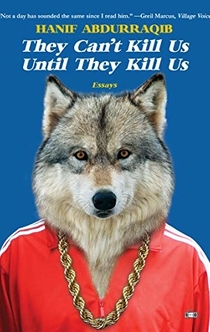
They Can't Kill Us Until They Kill Us
*2018 "12 best books to give this holiday season" —TODAY Show*Best Books of 2018 —Rolling Stone"A Best Book of 2017" —NPR, Buzzfeed, Paste Magazine, Esquire, Chicago Tribune, Vol. 1 Brooklyn, CBC, Stereogum, National Post, Entropy, Heavy, Book Riot, Chicago Review of Books, The Los Angeles Review, Michigan Daily*American Booksellers Association (ABA) 'December 2017 Indie Next List Great Reads' *Midwest Indie BestsellerIn an age of confusion, fear, and loss, Hanif Abdurraqib's is a voice that matters. Whether he's attending a Bruce Springsteen concert the day after visiting Michael Brown's grave, or discussing public displays of affection at a Carly Rae Jepsen show, he writes with a poignancy and magnetism that resonates profoundly.In the wake of the nightclub attacks in Paris, he recalls how he sought refuge as a teenager in music, at shows, and wonders whether the next generation of young Muslims will not be afforded that opportunity now. While discussing the everyday threat to the lives of black Americans, Abdurraqib recounts the first time he was ordered to the ground by police officers: for attempting to enter his own car.In essays that have been published by the New York Times, MTV, and Pitchfork, among others—along with original, previously unreleased essays—Abdurraqib uses music and culture as a lens through which to view our world, so that we might better understand ourselves, and in so doing proves himself a bellwether for our times."Funny, painful, precise, desperate, and loving throughout. Not a day has sounded the same since I read him." —Greil Marcus, Village Voice
See all

They Can't Kill Us All
'A devastating front-line account of the police killings and the young activism that sparked one of the most significant racial justice movements since the 1960s: Black Lives Matter ... Lowery more or less pulls the sheet off America ... essential reading' Junot Díaz, The New York Times, Books of 2016'Electric ... so well reported, so plainly told and so evidently the work of a man who has not grown a callus on his heart' Dwight Garner, The New York Times, 'A Top Ten Book of 2016''I'd recommend everyone to read this book ... it's not just statistics, it's not just the information, but it's the connective tissue that shows the human story behind it. I really enjoyed it' Trevor Noah, host of Comedy Central's 'The Daily Show'A deeply reported book on the birth of the Black Lives Matter movement, offering unparalleled insight into the reality of police violence in America, and an intimate, moving portrait of those working to end it In over a year of on-the-ground reportage, Washington Post writer Wesley Lowery traveled across the US to uncover life inside the most heavily policed, if otherwise neglected, corners of America today. In an effort to grasp the scale of the response to Michael Brown's death and understand the magnitude of the problem police violence represents, Lowery conducted hundreds of interviews with the families of victims of police brutality, as well as with local activists working to stop it. Lowery investigates the cumulative effect of decades of racially biased policing in segregated neighborhoods with constant discrimination, failing schools, crumbling infrastructure and too few jobs. Offering a historically informed look at the standoff between the police and those they are sworn to protect, They Can't Kill Us All demonstrates that civil unrest is just one tool of resistance in the broader struggle for justice. And at the end of President Obama's tenure, it grapples with a worrying and largely unexamined aspect of his legacy: the failure to deliver tangible security and opportunity to the marginalised Americans most in need of it.
See all

The Autobiography of Malcolm X
Now available as an eBook for the very first time! • ONE OF TIME’S TEN MOST IMPORTANT NONFICTION BOOKS OF THE TWENTIETH CENTURY In the searing pages of this classic autobiography, originally published in 1964, Malcolm X, the Muslim leader, firebrand, and anti-integrationist, tells the extraordinary story of his life and the growth of the Black Muslim movement. His fascinating perspective on the lies and limitations of the American Dream, and the inherent racism in a society that denies its nonwhite citizens the opportunity to dream, gives extraordinary insight into the most urgent issues of our own time. The Autobiography of Malcolm X stands as the definitive statement of a movement and a man whose work was never completed but whose message is timeless. It is essential reading for anyone who wants to understand America. Praise for The Autobiography of Malcolm X “Malcolm X’s autobiography seemed to offer something different. His repeated acts of self-creation spoke to me; the blunt poetry of his words, his unadorned insistence on respect, promised a new and uncompromising order, martial in its discipline, forged through sheer force of will.”—Barack Obama, Dreams from My Father“Extraordinary . . . a brilliant, painful, important book.”—The New York Times “A great book . . . Its dead level honesty, its passion, its exalted purpose, will make it stand as a monument to the most painful truth.”—The Nation “The most important book I’ll ever read, it changed the way I thought, it changed the way I acted. It has given me courage I didn’t know I had inside me. I’m one of hundreds of thousands whose lives were changed for the better.”—Spike Lee “This book will have a permanent place in the literature of the Afro-American struggle.”—I. F. Stone
See all

Looking for Lorraine
Winner of the 2019 PEN/Jacqueline Bograd Weld Award for BiographyWinner of the Lambda Literary Award for LGBTQ NonfictionWinner of the Shilts-Grahn Triangle Award for Lesbian NonfictionWinner of the 2019 Phi Beta Kappa Christian Gauss AwardA New York Times Notable Book of 2018A revealing portrait of one of the most gifted and charismatic, yet least understood, Black artists and intellectuals of the twentieth century.Lorraine Hansberry, who died at thirty-four, was by all accounts a force of nature. Although best-known for her work A Raisin in the Sun, her short life was full of extraordinary experiences and achievements, and she had an unflinching commitment to social justice, which brought her under FBI surveillance when she was barely in her twenties. While her close friends and contemporaries, like James Baldwin and Nina Simone, have been rightly celebrated, her story has been diminished and relegated to one work—until now. In 2018, Hansberry will get the recognition she deserves with the PBS American Masters documentary “Lorraine Hansberry: Sighted Eyes/Feeling Heart” and Imani Perry’s multi-dimensional, illuminating biography, Looking for Lorraine.After the success of A Raisin in the Sun, Hansberry used her prominence in myriad ways: challenging President Kennedy and his brother to take bolder stances on Civil Rights, supporting African anti-colonial leaders, and confronting the romantic racism of the Beat poets and Village hipsters. Though she married a man, she identified as lesbian and, risking censure and the prospect of being outed, joined one of the nation’s first lesbian organizations. Hansberry associated with many activists, writers, and musicians, including Malcolm X, Langston Hughes, Duke Ellington, Paul Robeson, W.E.B. Du Bois, among others. Looking for Lorraine is a powerful insight into Hansberry’s extraordinary life—a life that was tragically cut far too short.A Black Caucus of the American Library Association Honor Book for NonfictionA 2019 Pauli Murray Book Prize Finalist
See all

Breathe
2020 Chautauqua Prize Finalist2020 NAACP Image Award Nominee - Outstanding Literary Work (Nonfiction)Best-of Lists: Best Nonfiction Books of 2019 (Kirkus Reviews) · 25 Can't-Miss Books of 2019 (The Undefeated) Explores the terror, grace, and beauty of coming of age as a Black person in contemporary America and what it means to parent our children in a persistently unjust world. Emotionally raw and deeply reflective, Imani Perry issues an unflinching challenge to society to see Black children as deserving of humanity. She admits fear and frustration for her African American sons in a society that is increasingly racist and at times seems irredeemable. However, as a mother, feminist, writer, and intellectual, Perry offers an unfettered expression of love—finding beauty and possibility in life—and she exhorts her children and their peers to find the courage to chart their own paths and find steady footing and inspiration in Black tradition.Perry draws upon the ideas of figures such as James Baldwin, W. E. B. DuBois, Emily Dickinson, Toni Morrison, Ralph Waldo Emerson, and Ida B. Wells. She shares vulnerabilities and insight from her own life and from encounters in places as varied as the West Side of Chicago; Birmingham, Alabama; and New England prep schools.With original art for the cover by Ekua Holmes, Breathe offers a broader meditation on race, gender, and the meaning of a life well lived and is also an unforgettable lesson in Black resistance and resilience.
See all
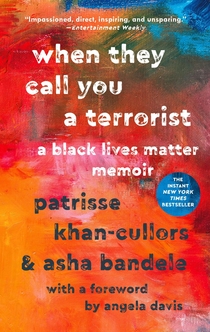
When They Call You a Terrorist
THE INSTANT NEW YORK TIMES BESTSELLER. New York Times Editor’s Pick. Library Journal Best Books of 2019. TIME Magazine's "Best Memoirs of 2018 So Far."O, Oprah’s Magazine’s “10 Titles to Pick Up Now.” Politics & Current Events 2018 O.W.L. Book Awards Winner The Root Best of 2018"This remarkable book reveals what inspired Patrisse's visionary and courageous activism and forces us to face the consequence of the choices our nation made when we criminalized a generation. This book is a must-read for all of us." - Michelle Alexander, New York Times bestselling author of The New Jim CrowA poetic and powerful memoir about what it means to be a Black woman in America—and the co-founding of a movement that demands justice for all in the land of the free.Raised by a single mother in an impoverished neighborhood in Los Angeles, Patrisse Khan-Cullors experienced firsthand the prejudice and persecution Black Americans endure at the hands of law enforcement. For Patrisse, the most vulnerable people in the country are Black people. Deliberately and ruthlessly targeted by a criminal justice system serving a white privilege agenda, Black people are subjected to unjustifiable racial profiling and police brutality. In 2013, when Trayvon Martin’s killer went free, Patrisse’s outrage led her to co-found Black Lives Matter with Alicia Garza and Opal Tometi.Condemned as terrorists and as a threat to America, these loving women founded a hashtag that birthed the movement to demand accountability from the authorities who continually turn a blind eye to the injustices inflicted upon people of Black and Brown skin. Championing human rights in the face of violent racism, Patrisse is a survivor. She transformed her personal pain into political power, giving voice to a people suffering inequality and a movement fueled by her strength and love to tell the country—and the world—that Black Lives Matter. When They Call You a Terrorist is Patrisse Khan-Cullors and asha bandele’s reflection on humanity. It is an empowering account of survival, strength and resilience and a call to action to change the culture that declares innocent Black life expendable.
See all
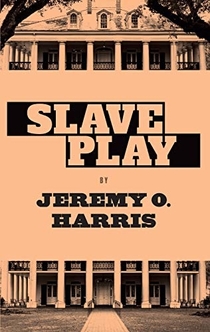
Slave Play
"The single most daring thing I've seen in a theater in a long time." -- Wesley Morris, New York Times The Old South lives on at the MacGregor Plantation--in the breeze, in the cotton fields...and in the crack of the whip. Nothing is as it seems, and yet everything is as it seems. Slave Play rips apart history to shed new light on the nexus of race, gender, and sexuality in twenty-first-century America.
See all

Hood Feminism
"If Hood Feminism is a searing indictment of mainstream feminism, it is also an invitation. . . . [Kendall] offers guidance for how we can all do better."--NPR.org"A rousing call to action for today's feminists. It should be required reading for everyone."--Gabrielle Union, author of We're Going to Need More WineA potent and electrifying critique of today's feminist movement announcing a fresh new voice in Black feminismToday's feminist movement has a glaring blind spot, and paradoxically, it is women. Mainstream feminists rarely talk about meeting basic needs as a feminist issue, argues Mikki Kendall, but food insecurity, access to quality education, safe neighborhoods, a living wage, and medical care are all feminist issues. All too often, however, the focus is not on basic survival for the many, but on increasing privilege for the few. That feminists refuse to prioritize these issues has only exacerbated the age-old problem of both internecine discord, and women who rebuff at carrying the title. Moreover, prominent white feminists broadly suffer from their own myopia with regard to how things like race, class, sexual orientation, and ability intersect with gender. How can we stand in solidarity as a movement, Kendall asks, when there is the distinct likelihood that some women are oppressing others? In her searing collection of essays, Mikki Kendall takes aim at the legitimacy of the modern feminist movement arguing that it has chronically failed to address the needs of all but a few women. Drawing on her own experiences with hunger, violence, and hypersexualization, along with incisive commentary on politics, pop culture, the stigma of mental health, and more, Hood Feminism delivers an irrefutable indictment of a movement in flux. An unforgettable debut, Kendall has written a ferocious clarion call to all would-be feminists to live out the true mandate of the movement in thought and in deed.
See all






